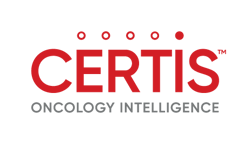
Let's Discuss Our Posters
Debbie Stanton
Chief Business Development Officer
3116/23
Development of Bioluminescent PDX Models to Study Metastasis and Evaluate Therapeutic Interventions
Abstract: Metastatic disease continues to be a significant cause of mortality among cancer patients. Despite advancements in patient-derived xenografts (PDXs), translational models of metastasis are lacking. To overcome this challenge, we have developed luciferase tagged PDX cultures and utilized optical imaging to create robust translational in vivo models of metastasis. Here, we show that these models can be implanted orthotopically into common metastatic sites or injected intravenously or intracardiacally to study spontaneous metastasis. Furthermore, we apply these models in humanized NOG-EXL mice to demonstrate immunophenotypic differences among tumors in different anatomical sites.
Authors: Jonathan Nakashima, PhD1; Jantzen Sperry, PhD1; Christophe Pedros, PhD1; Bianca Carapia1; Deborah Yan1; Giovanni Rivera1; Noah Federman, MD1,2; Arun Singh, MD1,2; Fritz C. Eilber, MD1,2; Brian Datnow, MD.1
1Certis Oncology Solutions, San Diego, CA; 2UCLA, Los Angeles, CA.
3117/24
Next-Generation Characterization of Patient-Derived Xenografts
Abstract: Patient-derived xenografts (PDXs) have provided the research community with dynamic and robust translational model systems to study cancer biology and accelerate drug development. To advance translational oncology, we have developed a library of PDXs and provide next-generation sequencing characterization of these models. Here, we provide mutation and transcriptomic profiles of our PDX collection along with comparisons against matched normal and cancer patient profiles. Lastly, we provide a web portal providing comprehensive genomic profiles for every PDX model to identify mutation, copy number, fusions, microsatellite status, gene expression, and enriched pathways to facilitate identification of clinically relevant models.
Authors: Jonathan Nakashima, PhD1; Long Do, PhD1; Warren Andrews1; Yuan-Hung Chien1; Jantzen Sperry, PhD1; Bianca Carapia1; Deborah Yan1; Giovanni Rivera1; Noah Federman, MD1,2; Arun Singh, MD1,2; Fritz C. Eilber, MD1,2; Brian Datnow, MD.1
1Certis Oncology Solutions, San Diego, CA 2UCLA, Los Angeles, CA.
3118/25
Functional Characterization and Therapeutic Response Differences Between Orthotopic and Subcutaneous Patient-Derived Xenograft Models
Abstract: Subcutaneous patient-derived xenografts (PDXs) have provided the research community with translational models to interrogate cancer biology and assist in drug development. Orthotopic PDXs provide an even more clinically relevant model system that recapitulates the tumor environment aspects of the human disease. Here, we compare the differences in gene expression signatures of PDX models when implanted subcutaneously or orthotopically. Furthermore, we evaluate differences in in-vivo pharmacological response between the two model systems and identify several functional characterizations that selectively enhance pharmacological response in favor of the orthotopic model.
Authors: Jonathan Nakashima, PhD1; Long Do, PhD1; Warren Andrews1; Yuan-Hung Chien1; Christophe Pedros, PhD1; Jantzen Sperry, PhD1; Bianca Carapia1; Deborah Yan1; Giovanni Rivera1; Arun Singh, MD1,2; Fritz C. Eilber, MD1,2; Brian Datnow, MD.1
1Certis Oncology Solutions, San Diego, CA; 2UCLA, Los Angeles, CA.
Access the Certis Tumor Bank
Our growing bank of patient-derived tumors includes only primary and low-passaged specimens of the highest quality: clinically relevant, well-characterized, and richly annotated. Our library includes tumors from a wide range of disease states—from treatment-naïve to metastatic, advanced-stage and drug-resistant cancers.
About Us
Certis Oncology Solutions is a cutting-edge life science technology company dedicated to precision oncology and translational science. We partner with pharmaceutical scientists to help develop the next generation of targeted therapeutics to fight cancers. Oncology intelligence is our focus, and custom model development is our specialty. Through the development of orthotopic in vivo PDX (O-PDX) models and in vitro PDX-derived cell lines, coupled with MRI, Bioluminescence, Fluorescence and Radiotherapy techniques, our scientific experts in our CLIA-certified lab can help you overcome the barriers in drug discovery and experience translational success.




